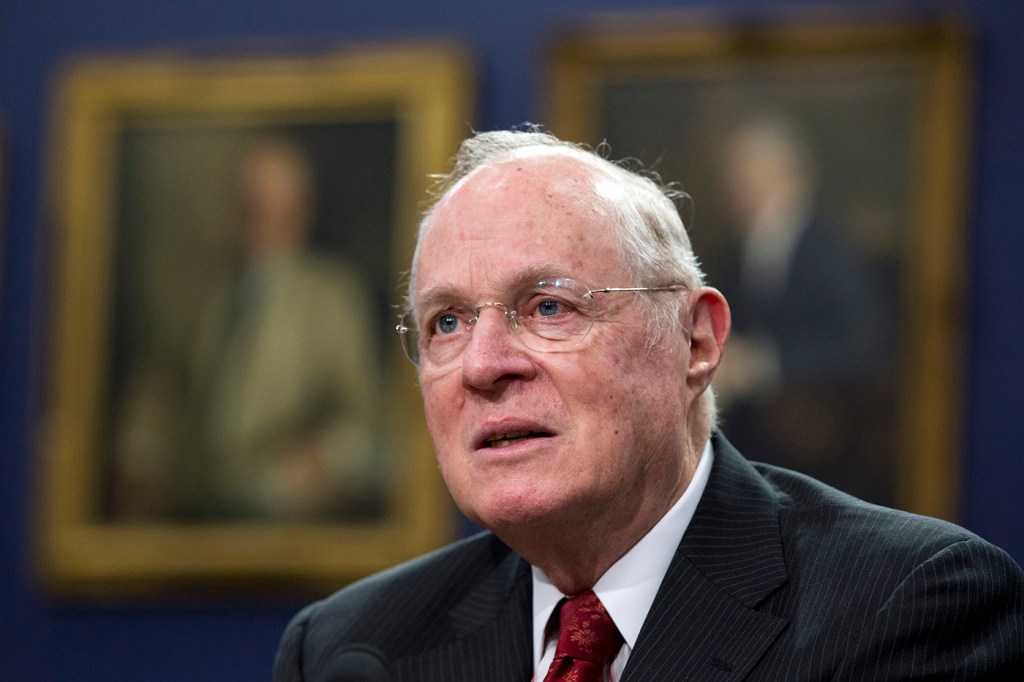What Justice Kennedy’s retirement means for the Supreme Court

On Wednesday, Supreme Court Justice Anthony Kennedy announced that he will retire in July after serving on the court for more than 30 years. President Donald Trump has already had his first nominee, Neil Gorsuch, confirmed to the court last year, and said the search to find Kennedy’s successor will begin immediately.
What does Kennedy’s retirement mean for the future of the court? What was his legacy? And is political conflict inevitable in the nomination process?
For answers to these questions, we turned to Supreme Court experts Dan Urman and Michael Meltsner. Urman holds joint appointments in the School of Public Policy and Urban Affairs and the School of Law, and Meltsner is the George J. and Kathleen Waters Matthews Distinguished University Professor of Law.
What is the significance of Kennedy retiring?
Urman: This is as consequential as anything that I can remember, mostly because this will not involve a “swap” of one ideologically consistent justice for another. Trump has the Senate votes for a much more conservative replacement. The closest example could be Clarence Thomas replacing Thurgood Marshall in 1991. There was a potentially transformative moment back in 2016, when Justice Scalia died and Obama could have replaced him with a moderate liberal in Merrick Garland.
On the court we generally have three camps: the moderate liberals (Justices Breyer, Kagan, Sotomayor and Ginsburg), the more centrist justices (Kennedy and Chief Justice Roberts), and the very conservative judges (Alito, Gorsuch, and Thomas). Kennedy’s replacement is going to be an ultra-conservative. As opposed to a swap out, this is going to move the center. This will put Roberts, who nobody considers a liberal, as the new swing vote.
What was Kennedy’s impact and legacy on the court?
Meltsner: For many years, Justice Kennedy has used his famous “swing vote” to moderate the Supreme Court’s increasingly more conservative bent. Think, for example, of his votes to decriminalize homosexuality and to support gay marriage. This term, however, has seen him vote with the other Republican justices on almost all of the important cases, most recently supporting the Trump travel ban and the Colorado baker’s claim of religious discrimination, upsetting the California regulation of anti-abortion clinics, and reversing the decades-old requirement that free riders pay unions for their non-political bargaining services. Several of these cases reflect his strident conception of the First Amendment, taking it into realms never imagined before.
The main story for the future is the prospect of the court being dominated by arch conservatives should Trump successfully nominate Justice Kennedy’s replacement. The prospects from such a court would certainly be a lack of interest in regulating rampant gerrymandering—an issue the court ducked this term—as well as reluctance to interfere with the administration’s immigration policies. Many will also be concerned about the fate of Roe v. Wade. One thing is clear—the justices continually confront fundamental issues implicating the Constitution and our cultural traditions. A court with a new Trump-chosen justice may feel empowered to make radical changes.
Despite the expectation that Kennedy’s successor will be more conservative and shift the center of the court, are there any signs of optimism for liberals?
Urman: Kennedy usually voted with the conservative side of the court. He wrote Citizens United, which essentially uses the First Amendment to say the government can’t restrict political expenditures. He unsuccessfully voted to strike down the Affordable Care Act. On Wednesday, he voted to disable public sector unions. On some level, he’s already pretty conservative, outside of LGBT rights, abortion rights, and the death penalty. One area in which his successor could potentially go the other way involves the First Amendment. Kennedy has an expansive view of it. There’s a chance his successor could have an idiosyncratic view. He also defended federalism and states’ rights, so there’s a chance that someone after him could take a view that the federal government has more power.
Given the current political climate, do you see both parties battling over these nominations for the foreseeable future?
Urman: I have a tragic answer. Yes, especially with the filibuster eliminated for Supreme Court nominations. There used to be a 60 vote threshold, and now it is 50 plus the vice president. If the party that nominated a judge didn’t matter, if this wasn’t a partisan issue, then we would be celebrating Garland’s second term on the U.S. Supreme Court. Senate Leader Mitch McConnell decided when Scalia died in February 2016 that he would put the Supreme Court on the ballot. To me, that made it nakedly political. In the wake of the Court’s travel ban ruling, McConnell posted a picture with Gorsuch on Twitter yesterday.
Have nominations always been politically partisan?
Urman: Nominations have always been political, and even more so as our country has become more politically polarized. Televised hearings add to the political theatrics. This may have peaked in 1987, when President Reagan unsuccessfully nominated Robert Bork. Bork got voted down because he was seen as too conservative. A little-known, quiet appeals court judge named Anthony Kennedy was the third nominee and was confirmed 97 to 0. Kennedy was seen as a disappointment by conservatives. Since Bork, and with Kennedy’s more “liberal rulings,” Republicans have felt like they had that seat unjustifiably blocked. There’s even a new dictionary term for it:“Borking,” which is when you discredit a candidate for some position by savaging his or her career and beliefs. As a result of Kennedy’s “drift,” you have nominees vetted more thoroughly, and they are more ideologically associated with the president who nominated them. Kennedy was one of the last people who didn’t perfectly align.
Overall, I see the politics of nominating continuing. We might be in an era in which the president and Senate must be from the same party for a successful nomination. The Garland-Gorsuch matter proved that it’s partisan and there’s a payoff. Trump got a lot of votes from people who cared more about the Supreme Court than his norm-shattering behavior.





